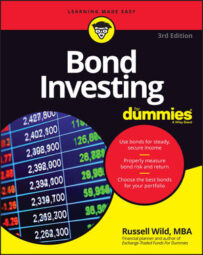Talk about good deeds. Churches in the United States have issued bonds for more than a century now. The bonds are most often secured by a deed of trust on church real estate or other property. Traditionally, most of these bonds have been sold as private offerings to bona fide members of the church congregation only.
But in the past decade or so, a market has been growing for church bonds offered to the general public — believer and heathen alike. Yes, a church-bond mutual fund even exists for those who seek holy diversification.
What are church bonds?
Church bonds look and feel something like corporate bonds, but they have a certain advantage in that they are almost always backed by the issuer’s real property. For that reason, when property held stable value, as it did for many years, church bonds rarely defaulted. But that situation changed when the real estate market starting tumbling. Since 2008, some church bonds have gone under.
Because most of these bonds are still sold under private offerings, and because the ratings agencies— the same people who generally produce default statistics— don’t rate church bonds, there’s no way to say exactly how many church bonds have defaulted.
But according to Scott Rolfs of B.C. Ziegler and Company (in the business of issuing church bonds since 1913), only 4 of the nearly 500 bond issues his firm has managed over the past 30 years have failed to pay investors back their promised interest and principal.
As for yield, says Rolfs, church bonds generally pay 65 basis points (65/100 of a percentage point) higher than BBB corporate bonds. At the time of this writing, in early 2012, the typical 10-year church bond was yielding about 6 percent, according to Rolfs.
Keep in mind a few caveats when buying church bonds:
Church bonds, which are usually issued in denominations of $1,000, tend to be rather illiquid; you could have a hard time selling a church bond that you don’t plan to hold to maturity.
All church bonds are callable, meaning that the church may give you your money back and retire the bond before it matures.
Because church bonds are generally too small to be rated by the major rating agencies, you’ve really got to trust your broker to do due diligence (that means homework in financial-speak) and make you an honest deal.
Don’t for a minute believe that church bonds are somehow divine creations. In 2010, a former Indiana pastor was sentenced to 54 years in prison for his role in selling more than $120 million in bogus church bonds. His main selling point, according to trial testimony, was an appeal to the Christian faith. The vast majority of church bonds, however, are legitimate financial instruments . . . if not divine.
Should you invest in church bonds?
Church bonds are viable alternatives to corporate bonds, especially if you care where your money is going and reap emotional reward from knowing that you are helping to fund the growth of a church. But the offerings are limited, and most are restricted to residents of certain states.
One church-bond mutual fund — Capstone Church Bond Fund (XCBFX) — founded in 2005, is available to any investor in any state. Unfortunately, the yearly management fee of 1.82 percent is very high. Nonetheless, for more information on the fund, you can contact Capstone Church Bond Fund through their website or at 1-800-262-6631. The five-year return of this fund is currently a very unimpressive 0.83 percent.
You may also try two other outfits devoted to the offering of individual church bonds:
B.C. Ziegler and Company; 1-800-366-8899
The American Investors Group; 1-800-815-1175
If you shop for church bonds, don’t do it on a prayer; shop as you would for any other bond. Make sure you read the prospectus and understand the risks involved. Note especially the collateral offered on the bond. Then get competitive bids, and be sure that you are not paying an unreasonable markup to the broker.
As of 2009, church bonds have been listed on the TRACE system that allows you to see recent buys and sells.

